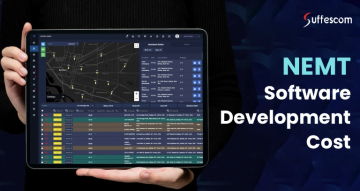How to Develop a Card Game App like Rummy in 2025?

The popularity of card game apps like rummy goes back centuries. History books reference times when Kings, Queens, and ordinary people played card games for entertainment. However, the rummy name first appeared in the late 19th century. Rummy games enjoyed a massive spike in popularity and development in the first half of the 20th century.
So, how does card game app development like Rummy fare in today's digital age? Well, it has multiplied in terms of popularity. Thanks to the reach of smartphones to ordinary people, game apps like Rummy have gained a considerable audience base within a short time. We can find a plethora of apps like Rummy with millions of downloads. This popularity has made rummy game development a profitable business.
If you want to build an on-demand card game like rummy, you have come to the right place. This blog will share all your information about the development of the rummy card game app.
Understanding Rummy Game Apps: A Quick Overview
The digital Rummy Card Game App provides platform access to play various Rummy variants through its online environment. Rummy is a skill-based game that works with two to six players simultaneously. A standard game with four participants distributes 13 cards to each person from the 52 cards in the deck. Users aim to complete first when arranging their 13 cards into valid ordered sequences with matching rank values.
Rummy applications for mobile devices replicate classic Rummy gameplay through new functions, including multiplayer sessions, live gameplay, and competitive events. The user-friendly interfaces coupled with lively graphics allow rummy game applications to enable gamers to enjoy card games at any moment from any location.
Key Features to Consider for Rummy Game App Development
| Core Game Features | Security & Fair Play Features | User Engagement Features | Admin & Backend Features |
| Multiplayer Support | Anti-Fraud System | Profile Management | Robust Admin Panel |
| Game Variants | Random Number Generator (RNG) Certified Shuffling | Refer and Earn Program | Real-Time Analytics Dashboard |
| Smooth User Interface (UI) | Secure Payment Gateway Integration | Daily Bonuses & Rewards | Push Notifications |
| Advanced Game Engine | - | Leaderboard and Achievements | Support for Android, iOS, and Web |
| Practice Mode / Guest Login | - | - | - |
Core Game Features
Multiplayer Support
A Rummy app should allow real-time multiplayer gameplay, enabling 2 to 6 players to join a game room. Smooth matchmaking and stable connections are key to a seamless experience.
Game Variants
Offering multiple Rummy formats—like Points Rummy, Pool Rummy, Deals Rummy, or Gin Rummy—caters to a broader audience and enhances player retention.
Smooth User Interface (UI)
An intuitive and visually appealing interface enhances the user experience. Smooth animations, clean design, and responsive controls are essential for mobile gameplay.
Advanced Game Engine
A powerful backend game engine handles the core logic for shuffling, dealing, sorting, and scoring. It ensures accuracy and keeps gameplay fair and consistent.
Practice Mode / Guest Login
This feature allows new users to play without registering. It lowers the entry barrier and increases app installs by letting users explore the game risk-free.
Develop Your Rummy Card Game App With Suffescom!
Get a custom-built, feature-rich Rummy app ready to rule the online card gaming market.
Security & Fair Play Features
Anti-Fraud System
The anti-fraud system contains built-in algorithms that identify suspicious activities, including machine automation and cheating attempts. The fair operations systems build trust with players, who become devoted customers for extended periods.
Random Number Generator (RNG) Certified Shuffling
The use of Random Number Generator (RNG) Certified Shuffling enables players to experience fair card distribution and random gameplay, resulting in sustainable credibility.
Secure Payment Gateway Integration
To support real-money gaming, the app should integrate with trusted and secure payment gateways, ensuring fast and safe transactions for deposits and withdrawals.
User Engagement Features
Profile Management
Users should be able to create and manage personal profiles, track their performance, view stats, and even personalize their avatar or game presence.
Refer and Earn Program
The Refer and Earn Program allows users to earn rewards by inviting friends, which promotes natural application expansion. Users in reward-based systems tend to remain active because they receive motivational incentives.
Daily Bonuses & Rewards
Offering daily login rewards, lucky draws, and loyalty programs keeps returning users and enhances engagement in the Rummy Card Game App.
Leaderboard and Achievements
Competitive elements like leaderboards and unlockable achievements thrill the game and motivate users to improve their performance.
Admin & Backend Features
Robust Admin Panel
The admin panel requires complete authority over app operations by allowing management of users and games, and access to reports and promoting features and revenue tracking.
Real-Time Analytics Dashboard
The real-time analytics dashboard provides crucial instant access to behavioral user data, session times, retention statistics, and revenue breakdown information, which lets organizations make data-based improvements to their game functions.
Push Notifications
Timely alerts for new events, offers, bonuses, or reminders help re-engage inactive users and boost daily active users.
Support for Android, iOS, and Web
Support for users who access Android systems, iOS devices, and web access ensures platform compatibility. Code created for multiple platforms produces identical user interactions across all gadgets.
How to Develop a Card Game App Like Rummy?
Factors like cost-effective infrastructure and the potential for high revenue have made building a card game app a popular trend among gaming entrepreneurs.
However, developing a Rummy game is challenging for a Rummy app developer. Building a successful card game like Rummy requires planning, skills, strategy, and more. Let's break the ice and learn how to develop a Rummy-like card game application.
Step 1: Market Research and Concept Finalization
Understand your target audience, competitors, and the latest trends in card games. Finalize the game type (Points Rummy, Pool Rummy, etc.) and features you want to include.
Step 2: Hire an Experienced Game Development Team
Reliability should be a factor in choosing a rummy game development company or selecting experts in Unity Unreal Engine software, user interface and experience development, and server-side systems development.
Step 3: Create Card Game Design and Wireframes
Design how the game interface will appear, the arrangement of cards and movements throughout gameplay, and all visual elements in the rummy clone app development. Produce wireframes that merge with user flow diagrams to build a smooth gaming system.
Step 4: Develop the Game Logic and Backend
Build the core game engine and logic for shuffling, dealing, and scoring. Set up secure servers to handle real-time multiplayer gameplay, user data, and transactions.
Step 5: Integrate Secure Payment Gateways
The addition of several well-known payment gateways with legal and security-oriented application programming interfaces will allow users to buy in-game content through payments using real money while abiding by all safety laws.
Step 6: Add Features and Functionalities
Add fundamental and state-of-the-art features, including player profiles, chat systems and leaderboards, anti-cheat algorithms for anti-cheating measures, and built-in customer support.
Step 7: Test Rigorously
Dedicate alpha and beta testing phases to detect system failures, interface errors, and process speed problems. The development process should emphasize real-time operation together with compatibility across various platforms.
Step 8: Launch and Market the App
The testing process should be completed before the app is deployed to Android, iOS, and Web platforms. The target audience will download the application because of our strategic marketing plan, which includes social media platforms, influencer collaborations, and app store optimization techniques.
Step 9: Monitor, Update, and Scale
A professional game app development company follow a proficient approach to achieve optimal performance. The application requires continuous analysis of user interactions, product reviews, and metrics. Developing new features and improving scalability establishes user loyalty across multiple versions.
Get a Free Rummy Game Development Consultation!
Talk to our experts and get a detailed project plan, cost breakdown, and market insights—at zero cost.
How Much Does a Rummy Game Development Cost?
The cost of developing a Rummy game app can vary significantly depending on multiple factors such as features, design complexity, technology stack, platform compatibility, and the development team's location.
The basic development of a Rummy game that includes multiplayer support, single-game variants, and basic user interface and integration will cost, on average, start from $10,000.
The development of a medium-level Rummy application featuring various game variants, advanced user interaction and administration panels, payment security, and analytical functionality requires an investment between $10,000 to $15,000.
The cost of developing an advanced Rummy platform featuring full feature integration, high-end animations supported with synthetic intelligence anti-fraud systems, customized avatars, cross-platform capabilities, and in-game messaging and marketing tools will cost you around $25,000.
Key Factors Affecting the Cost of a Game App Like Rummy:
- Game Type & Variants (Points, Pool, Deals, etc.)
- UI/UX Design Complexity
- Platform Support (Android, iOS, Web)
- Backend Infrastructure & Server Load
- Security Integrations
- Third-party APIs (Payment gateways, analytics, etc.)
- Maintenance & Post-launch Support
It's essential to treat game development as a scalable investment—start with an MVP (Minimum Viable Product) and scale it up with additional features based on user feedback and market trends.
What Makes Us An Ideal Game App Development Company?
Suffescom is an ideal Rummy game app development company. We deliver dynamic rummy games featuring real money gameplay that satisfies risk-seeking players with advanced experience.
Our Rummy app developers have considerable experience producing digital games for websites and mobile applications. We help businesses build online games through our next-gen service while creating adjustable interfaces that match their specifications.
FAQs
1. How long does it take to develop a card game like Rummy?
The rummy clone app development process typically takes 3 to 6 months, depending on the combination of technical requirements, design specifications, and platform dependencies.
2. Do you offer customized Rummy game app development?
Absolutely! Our company produces a personalized Rummy clone app that meets each client's business needs. Our team ensures your app stands out by developing its design, features, branding, and gameplay experience.
3. Is it profitable to invest in an online multiplayer Rummy game?
The modern digital gaming market provides substantial profitability for investments in online multiplayer rummy games. Use the increasing popularity of skill-based card games, real-money gaming, and business opportunities to create significant revenue streams.
4. How much does it cost to develop a Rummy game app?
Rummy game application development can range from $5,000 to $20,000. The final price depends on the implementation of additional features, design intricacy, and the required platform functionality. By presenting your project specifications to the Suffescom team, you can get a detailed cost estimation.
5. What are the key differences between developing a rummy game and a casino game?
Rummy is a skill-based, multiplayer game that needs real-time gameplay, strategy, and follows specific legal rules. Casino game development, on the other hand, focuses on chance-based games like slots or roulette, usually single-player, using RNG, attractive visuals, and in-app purchases or house edge for monetization.







